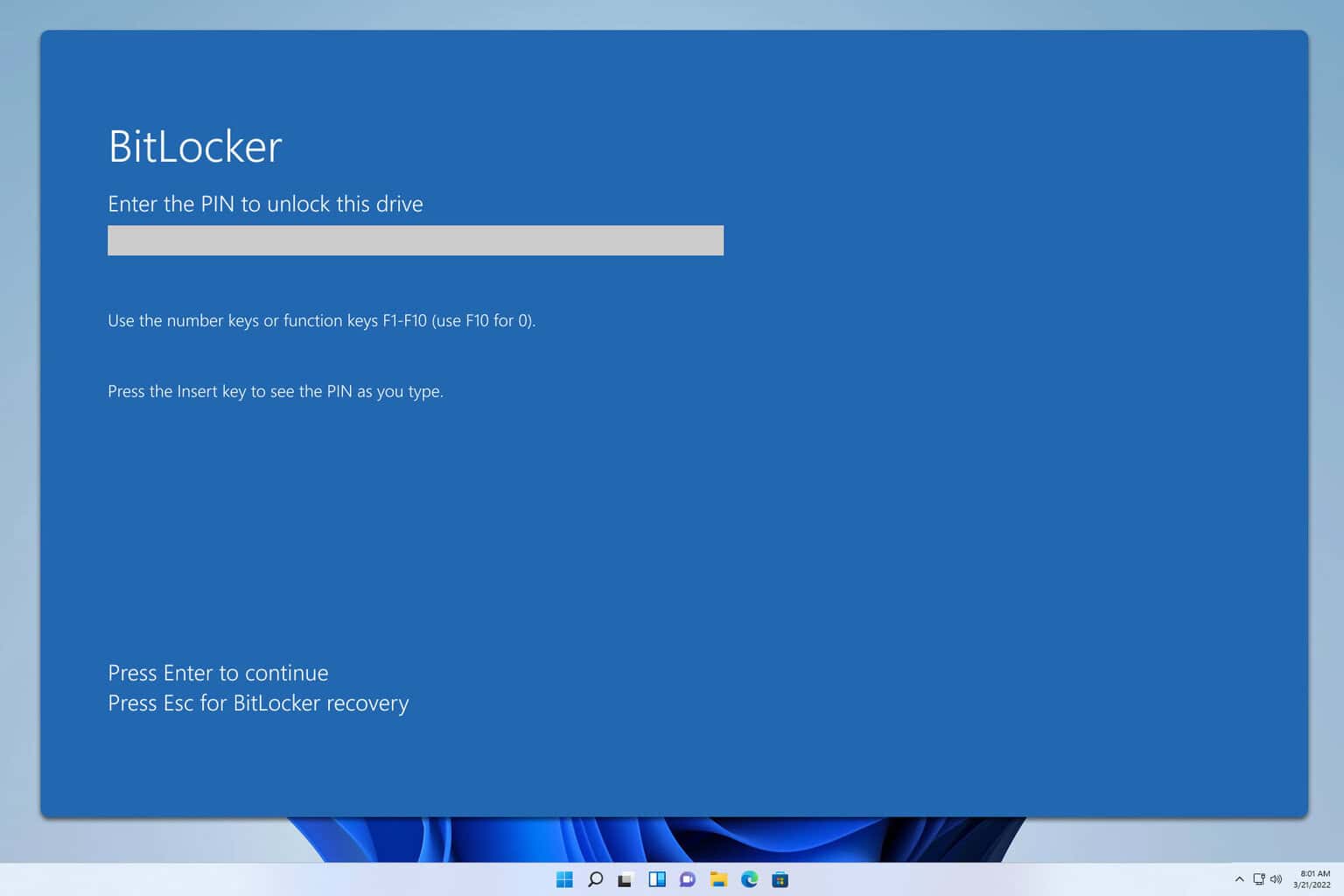How to Remove Personal Information from the Internet?
7 min. read
Updated on
Read our disclosure page to find out how can you help Windows Report sustain the editorial team. Read more

Cybercriminals are always on the lookout to exploit your personal information and with the trove of data available online, people are more at risk than ever.
There’s never been a better time to take control of your digital footprint and learn how to remove your information from the internet. Here’s how you can do it yourself and use services like Incogni to do it for you.
What is personal information?
Did you know, in 2021 alone, the Federal Trade Commission received nearly 1.4 million reports of identity theft? The type of personal information that can be found online via public records, social media accounts, and data brokers is staggering. This can include:
- Full name, contact information, date of birth, sex, marital status, race
- Property records
- Criminal/court records
- Financial records
- Medical records
- Social Security number
- History of employment
That’s without mentioning what you might inadvertently reveal about yourself when posting on Facebook, Twitter and other social platforms. By combining this data together, cybercriminals can build enough of a profile to carry out identity theft.
Fortunately, removing online information isn’t difficult. Let’s explore the top ways to scrub your personal data and protect your identity moving forward.
How can you remove your personal information from the web?
Follow these steps on how to remove your information from the internet manually:
1. Delete obsolete and unused online accounts
Over time, we all accumulate dozens, if not hundreds of online accounts. From gaming profiles, to shopping accounts, and everything in between.
Step one is to get rid of those old unused accounts that could be still processing your information, displaying info publicly on profiles, and needlessly sitting there for a data breach to occur.
Tip: Sometimes closing account doesn’t mean your data is deleted. However, you have the right to your data, so don’t hesitate to contact the company, request what is held, and formally request for the full account to be deleted.
2. Opt out from data broker sites and people search sites
Data broker and people search sites are online services that collect, store, and sell personal information to individuals and advertisers. To protect yourself from sites like Public Record Search, SearchQuarry, Sync.me, and others, you can opt out by following these steps:
1. Identify the data broker and people search sites that have your information. You can do this by searching for your name online.
2. Most sites should have an option to remove your information via the privacy policy, opt-out page, or contact form. This may be hidden at the bottom of the homepage.
3. Follow the opt-out instructions for each site. This may involve filling out a form, sending an email, or making a phone call.
4. Monitor your information regularly. Even after opting out, your data may still appear on these sites due to their continuous data collection practices.
3. Use Incogni for automatic removals

Instead of step 2, a service like Incogni helps protect your personal data and enhance online privacy by doing all the hard work for you.
You don’t have to worry about how to remove your information from the internet because it automatically submits data removal requests to hundreds of problematic data brokers on your behalf. These brokers may have access to your Social Security number, physical address, phone number, email address, and more.
Such data can be used for marketing, recruitment, financial, and health purposes. Or worse, scams and phishing attempts. This can result in unwanted ads, influence loan eligibility or insurance rates, and increase the risk of attacks.
Moreover, Incgoni regularly monitors for new instances of your data showing up, ensuring that your information remains protected even after the initial removal.

You can manage everything from a user-friendly dashboard where you can view the status of your data removal requests and receive personalized privacy recommendations.
- Currently, subscribers can keep their data off the market with a 1-year subscription at a 50% discount ($6.49/mo).
4. Remove your information from Google Search results
Search engines are becoming much friendlier when it comes to removing your personal information. Google has a formal process for doing just that.
1. Type your name in quotations in Google search and note anything you wish to delete. It’s also worth searching for your nicknames and usernames.
2. Check the Google cache and use the advanced search and tools tab to run a thorough search over the past year or a custom range for a longer period.
3. Take screenshots of the results and save the URLs from the search results and the pages with the content themselves.
4. Go to the Google Removal Request page and click Start removal request.

5. Check the Content contains your personal information option. I.e., Address, phone number, email, etc. Then select your country and hit next.

6. Check all the boxes that correspond with the info you wish to remove and hit next.

7. Fill out the required fields and enter the content URLs, Google search results page URLs, and attach the screenshots from earlier.
8. Once complete, check the confirmation box and click Submit.
5. Delete unused apps from your phone
Mobile apps can gather a lot of personal info, especially if you have given them permissions. In the worst cases, some apps will mine info even without permission. Therefore, it’s a good idea to delete any apps you no longer use.
You should also search reviews for any questionable apps you suspect of gathering info they shouldn’t and delete those too.
6. Optimize your security settings
One of the best ways to prevent your personal information from being exploited is to prevent it from appearing in the first place and securing your online accounts to prevent hacking and phishing attempts.
1. Set your social media profiles to private or so only friends can see what you post. Even then, refrain from posting your mobile number, address, and other private information. You can also use Social Media Protection Software for added security.
2. Google’s built-in Security Checkup tool lets you check the devices connected to your Google account. Remove any that are unfamiliar or no longer needed. It also provides a checklist of settings and information that guides you to better securing your account.
3. Use biometric fingerprint and/or facial recognition to secure your mobile apps, especially for sensitive ones like banking or social media.
4. Clear your browsing history regularly and consider blocking third-party cookies, so you cannot be tracked by advertisers or bad actors as you browse the web.
How can you protect your personal information?
To remain safe when using the internet, keep the following tips in mind:
1. Use a throwaway email address for anything other than work or contact with trusted friends.
2. Never reuse the same password and always use a strong password. I.e., 12 or more characters with a mix of uppercase and lowercase letters, numbers, and special characters (e.g., !, @, #, $).
Never use common words, especially those personal to you like names, pet names, or birthdays, as these can be gleaned from elsewhere.
3. Use a VPN to encrypt your real-time internet activity and hide your real IP address, which can be used to trace your location. A VPN is a must when using unsecured public Wi-Fi or other unsecured networks.
4. Use an antivirus program with phishing detection and real-time internet protection. Even then, never open untrusted email links or text messages.
5. Don’t share personal information on social media that can be linked with other data to build an identity theft profile.
The final word on how to get your personal information off the internet
People are starting to feel less safe and are becoming more aware of what threats they may be facing on the internet. However, it’s not always easy to know how to remove your information from the internet.
Fortunately, by following the above tips, using some common sense, and considering services like Incogni, you can be sure your data never falls into the wrong hands.








User forum
0 messages